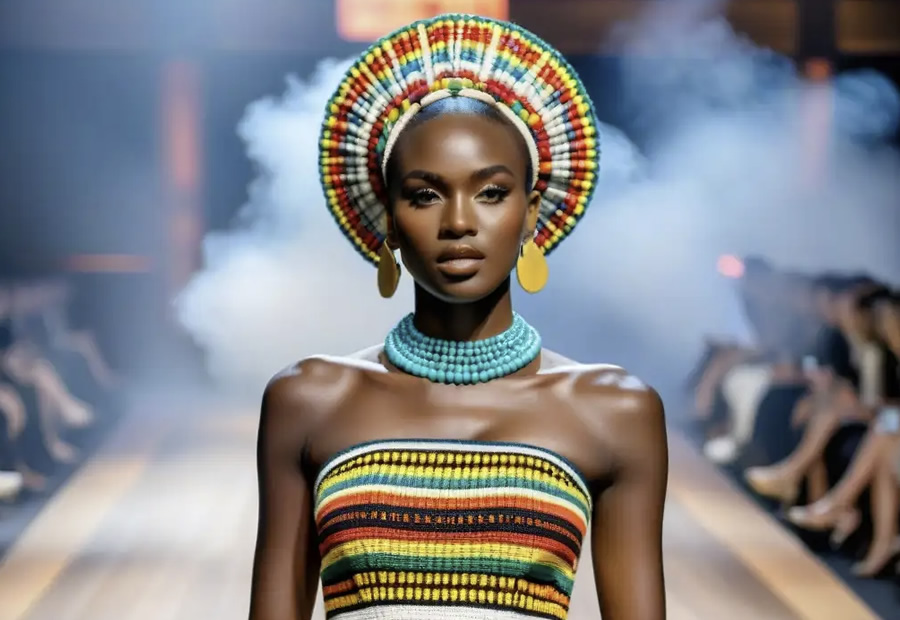
The African continent is setting trends in the fashion world. Cities such as Lagos, Dakar and Johannesburg are emerging as new creative epicentres, imposing a bold aesthetic deeply rooted in cultural identity. Faced with the great European benchmarks, Africa is making steady progress on the international catwalks.
In Lagos, designers mix traditional fabrics with contemporary cuts, creating an unmistakable style that has already caught the attention of global celebrities and luxury brands. Lagos Fashion Week has established itself as a key showcase for this new talent, combining local craftsmanship with global ambition.
Dakar, for its part, has turned fashion into a vehicle for cultural storytelling. Its creators are committed to pieces that not only dress, but also tell stories, celebrate African heritage and reaffirm their identity to the world. Senegalese fashion thus becomes a form of aesthetic resistance and collective memory.
In Johannesburg, the urban pulse is strong. South Africa's youth mixes streetwear with high fashion, creating a vibrant and provocative scene. This fusion of styles has positioned the city as one of the most exciting emerging hubs of contemporary design.
The industry is no longer local: African brands are parading in Paris, New York and Milan, appearing on the covers of international magazines and dressing global influencers. According to UNESCO, the sector generates more than 15 billion dollars a year and has the potential to triple its profits if investment in infrastructure, training and international visibility is consolidated.
The African fashion revolution is not only aesthetic: it is also economic. It creates jobs, boosts local artisans and opens up new export channels. Young designers, connected through social media, are redefining the future of global fashion with talent, pride and an authentically African vision.
Source: apnews.com; @tranziehq
